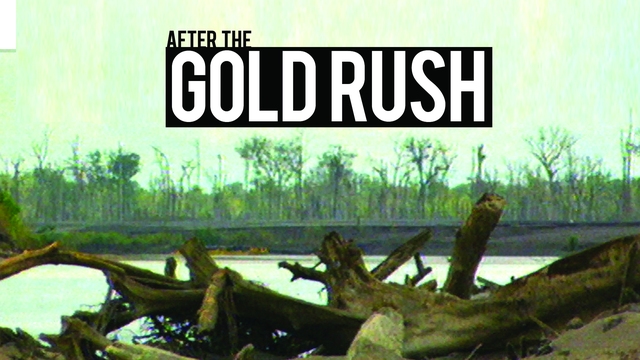After the Gold Rush
The Ok Tedi mine in the high remote mountains of Papua New Guinea is the scene of massive environmental damage.
 As world leaders debate the causes and effects of global warming, we take a look at yet another example of man's damaging behaviour on the environment. In the light of BHP's decision to exit the giant Ok Tedi gold and copper mine in Papua New Guinea, this documentary asks what happens when a foreign mining company bails out of a big project in a developing country? Who wins? Who loses?
As world leaders debate the causes and effects of global warming, we take a look at yet another example of man's damaging behaviour on the environment. In the light of BHP's decision to exit the giant Ok Tedi gold and copper mine in Papua New Guinea, this documentary asks what happens when a foreign mining company bails out of a big project in a developing country? Who wins? Who loses?
For BHP, the project became a public relations disaster recently, when it was revealed that the mine had caused serious environmental damage to the river systems. For 16 years millions of tons of extract waste were pumped directly in to the Ok Tedi River causing flooding and smothering vegetation over large areas; a catastrophe for people who live along the river. Yet, despite the environmental consequences, the mining has become an economic lifeline for Papua New Guinea, providing up to 10 per cent of government income and 20 per cent of national exports. Rich royalties and jobs for local people have improved the living standards of some while many others have seen their livelihood destroyed. Maun Tepke, a villager, laments: "A rich man came with a lot of money and he destroyed my environment. He got richer and made me poor."
BHP insists that it learned only recently of the scale of environmental damage caused by the mine. But the company should not need a rear-vision mirror to see what went wrong. After the gold-rush, when the copper came on-stream in the late 1980s and copper sediment started pouring into the river, the warnings were loud and clear. Already in 1989 landowners and fishermen noticed that the plants were changing, trees were dying and that fish stocks were drastically reduced.
Fearing further bad publicity and colossal legal claims, BHP have announced plans to close the mine. But the PNG government wants them to stay. Whether its for the 10'000 people employed by the mine or to clear up the mess that they have made, the message is clear: it's an attempt to impose some form of long-term responsibilities on multi-nationals who work in developing countries. Along with the jobs and the environmental degradation, Ok Tedi has fundamentally changed the lifestyle of many Papua New Guineans. "We can't turn the clock back and expect people to be living like...where there was no electricity, no roads, no airstrips and so on", says one man voicing the expectations the mine has brought. The question is still at what cost these developments have come. And who will be left to pay the price. With stunning Images, this documentary paints a bleak picture of the role of multinational corporations in the developing world.
FULL SYNOPSIS
Produced by ABC Australia
